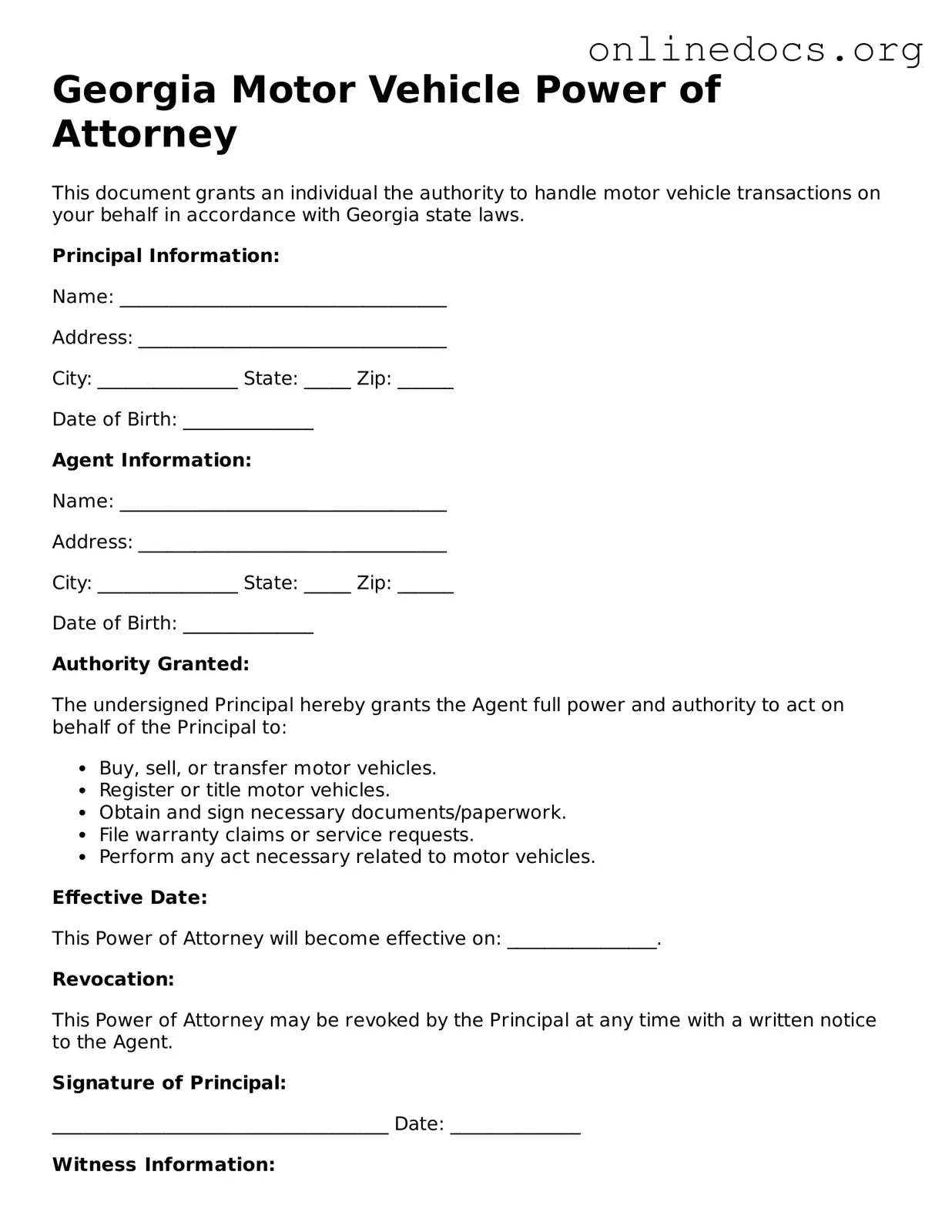Filling out the Georgia Motor Vehicle Power of Attorney form can be a straightforward process, but many individuals make common mistakes that can lead to complications. One frequent error occurs when the principal, the person granting authority, fails to sign the document. A signature is essential; without it, the form lacks legal validity and cannot be used to authorize someone else to act on the principal's behalf.
Another mistake is neglecting to date the form. The date serves as a crucial reference point, indicating when the power of attorney becomes effective. Without a date, there may be confusion regarding the timing of the authority granted, potentially leading to disputes or misunderstandings in the future.
Individuals often overlook the importance of clearly identifying the agent, the person receiving the authority. Providing only a name without additional identifying information, such as an address or phone number, can create ambiguity. If the agent's identity is unclear, it may lead to challenges when the agent attempts to act on behalf of the principal.
Furthermore, some people forget to specify the powers granted to the agent. The form should clearly outline what actions the agent is authorized to take regarding the principal's motor vehicle. Vague or overly broad language can result in unintended consequences, as the agent may assume they have more authority than intended.
Another common error involves failing to include any necessary witnesses or notarization. In Georgia, certain powers of attorney may require notarization to be legally binding. Skipping this step can invalidate the document, rendering it ineffective when the agent attempts to use it.
Additionally, individuals sometimes make the mistake of not considering the implications of granting power of attorney. It is crucial to understand that this document gives the agent significant control over the principal's vehicle-related decisions. Without careful consideration, the principal may inadvertently empower someone who does not have their best interests in mind.
People may also neglect to keep a copy of the completed form. Once the power of attorney is executed, both the principal and the agent should retain copies. This ensures that both parties have access to the document, which can help prevent disputes and misunderstandings later on.
Another issue arises when the principal uses outdated forms. Legal documents can change over time, and using an old version of the Motor Vehicle Power of Attorney form can lead to complications. It is essential to obtain the most current version to ensure compliance with Georgia laws.
Lastly, individuals sometimes fail to revoke a power of attorney when it is no longer needed. If the principal decides to change agents or no longer wishes to grant authority, it is crucial to formally revoke the power of attorney. Failing to do so can leave room for confusion and potential misuse of the authority granted.
